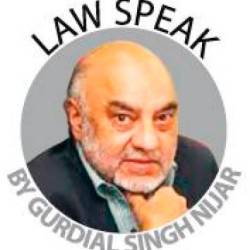MALAYSIANS woke up today to a hung Parliament. This happens when any party gets the most votes and seats, but fails to secure a majority of the seats.
In our context, the total number of seats in the Dewan Rakyat is 222. To obtain a majority, a party must get at least 112 seats. If it falls short of that, no one party commands the majority in the Dewan Rakyat (Dewan).
Who then forms the next government?
The Federal Constitution does not provide an easy and direct answer. Indirectly, there is some indication. For the Constitution says that the King has the discretion to appoint as prime minister (PM), the person whom he feels is likely to command the confidence of the majority of the members of the Dewan. Note that the Constitution does not say that the PM must be the leader of the political party with the most votes. The PM once appointed then names his Cabinet, and they then constitute the government to run the country until the next election.
In a hung Parliament, it is not really possible for the King to know who will command the confidence of the majority of the members of the Dewan.
The King must resort to how these kinds of issues, that are not explicitly provided for in the Constitution, are resolved. The solution lies in abiding by conventions – that is, unwritten practices that are generally followed in the absence of specific provisions in the Constitution.
The role of such conventions as an integral part of our constitutional construct has been recognised by our higher courts. In a decision involving the 2009 tussle as to who could continue to be the mentri besar of Perak, the Court of Appeal spoke thus:
“The Federal Constitution, however, is embodied in one document and gathers unto itself various sources of law, some of which are implicit. The unique presence of the written law, shot through with informal and unwritten sources in the form of conventions, prerogatives, discretionary and residual powers as such, help ensure the continuation of constitutionalism and the rule of law. Thus, the sources of law in our Constitution are several.” Article 160(1) of the Federal Constitution says it all. “Law includes written law, the common law, insofar as it is in operation in the Federation or any part thereof, and any custom or usage having the force of law in the Federation or any part thereof.”
What convention then governs a hung Parliament situation? The party with the highest number of votes will first be asked by the King to form the government. It is then up to that party to get any other party to agree to join it in a coalition, and thus secure sufficient number of seats to secure a majority of the members of the Dewan. With these numbers secured, it will go back to the King and after satisfying His Majesty of the majority numbers, the King will then appoint the accepted leader of the coalition group to form the government.
This is what happened after the results of the UK election in 2010. The incumbent Labour Party lost the 66-seat majority it had previously enjoyed, but no party achieved the 326 seats needed for a majority. The Conservative Party, led by David Cameron, won the most votes and seats, but still fell 20 seats short. This resulted in a hung Parliament where no party was able to command a majority in the House of Commons.
Cameron began talks immediately with another party, the Liberal Democrats, to form a coalition. The talks lasted for five days. In the meantime, the Labour Party tried as well to tie up with the Liberal Democrats but failed. Realising that a deal between the Conservatives and the Liberal Democrats was imminent, the leader of the Labour Party resigned as PM the next day, on May 11. This was accepted by the Queen, who then invited the leader of the Conservative party to form a government in her name and become PM.
Just after midnight on May 12, the Liberal Democrats approved the agreement “overwhelmingly”, sealing a coalition government of Conservatives and Liberal Democrats. These parties in the new coalition entered into an initial agreement covering the full range of policy including foreign, defence and domestic policy issues. The final agreement was based on three core values shared by both parties: “Freedom, fairness and responsibility”.
This could well be the scenario to follow for resolving the issue of a hung Parliament here.
Gurdial Singh Nijar is a professor of law and a former legal practitioner.










